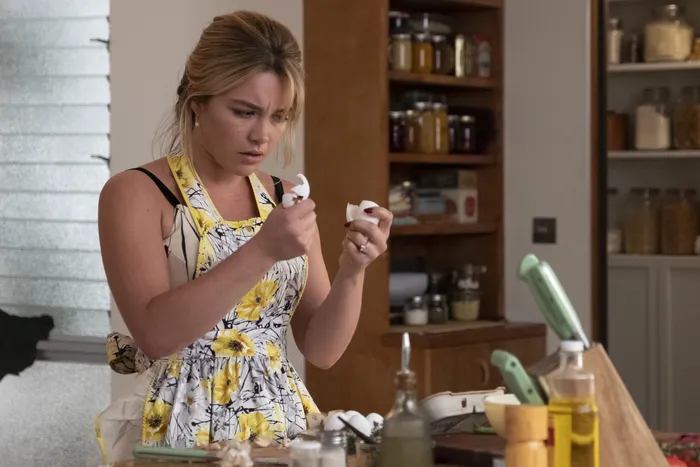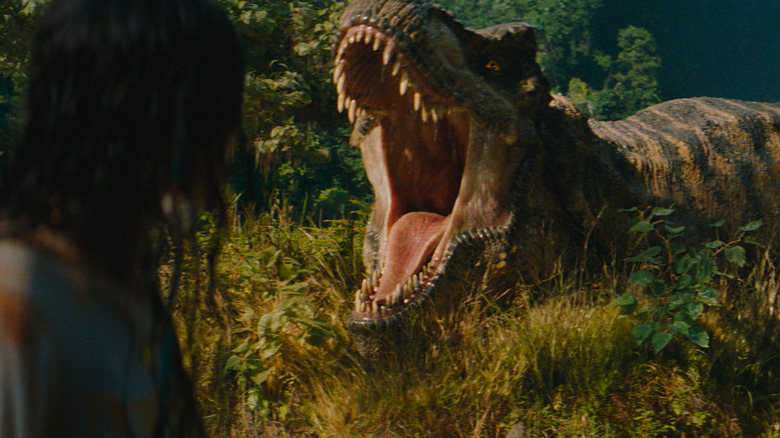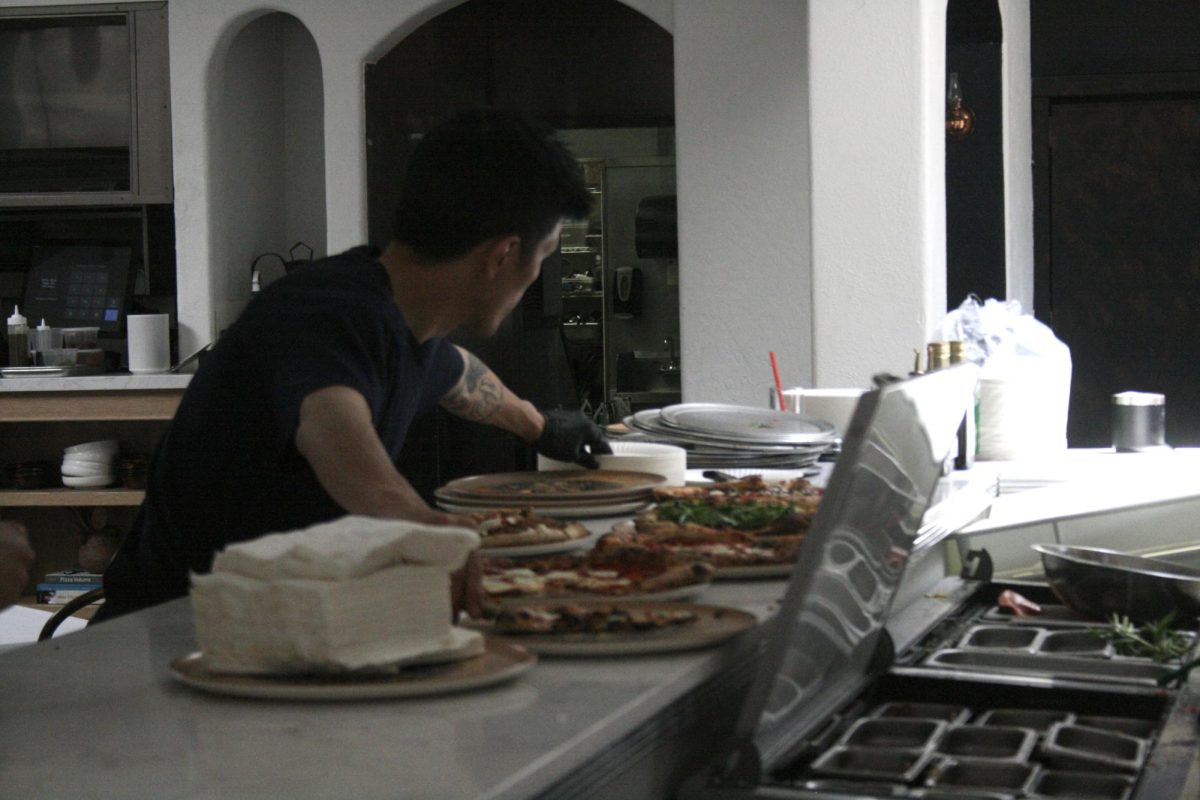*MODERATE SPOILERS HERE, DARLING!*
*CW: suicide*
It is safe to say that Alice (Florence Pugh) has it made: a loving husband (Harry Styles) with a stable job, an active social life, even homeownership!
It is everything a woman could ask for, or at least it is what she’s “told” she should. There is a massive caveat to living in this neighborhood and Alice is about to find out why.
By being one of the most hyped non-franchise films of the year, “Don’t Worry Darling”’s press shenanigans often threatened to, or outright did, overshadow the film itself. Long story short, expect an oral history of the production sometime in the future.
And oh man, what a production.
A candy-coated feast of early 1960s Palm Springs vibes, Katie Byron’s sumptuous production design and frequent Madonna collaborator Arianne Phillips’ costumes deliver some absolutely immaculate retro vibes. Matthew Libatique’s stunning cinematography, reminiscent of his work on “Requiem For A Dream”, brilliantly leans into the narrative’s elements of order and symmetry.
It is that aforementioned narrative where things start to get rocky.
“Don’t Worry Darling”’s script initially showed promise as it was on the 2019 edition of the Black List, an “…annual ranking of the best unproduced screenplays of the year.” It is easy to see why. It digs into some really interesting territory regarding domestic stability and agency. What must be sacrificed for a better life, and who gets a say in those decisions? Is that life “better” for everyone or a select few? Are we continuing to ignore women’s voices by dismissing them as “hysteria”?
When the film finds itself on that wavelength, it is great; the execution is what brings it down. The term “style over substance” was made for films like this.
Director and actor Olivia Wilde is clearly following in Jordan Peele’s social horror footsteps, a comparison already made by many. There is nothing wrong with giving that a shot. The problem is that “Don’t Worry Darling” is so convinced that it is delivering a mind blowing revelation, when it’s actually just airing a rerun. Katie Silberman’s tweaks to the original script add some nuance, but not enough to completely save it.
When it is not beating you over the head with heavy handed symbolism, like the house literally crushing Alice and cliché dialogue, the script tries to fill its many gaps by falling back on its visuals. Many of Kiki Layne’s scenes were allegedly cut, which seems apparent. Her character, Margaret, is the catalyst for Alice’s journey and yet she is reduced to an afterthought. No amount of Busby Berkeley homages and errant airplanes can distract from that; not that those ever served any real purpose.
On the plus side, Pugh tears into her performance. She is totally believable as a woman slowly discovering that her “paradise” is a prison. While he is not as atrocious as the internet made him out to be, Styles cannot hold a candle next to Pugh. It is clear who the real star is here, despite Wilde’s (many) efforts to make us believe otherwise.
“Don’t Worry Darling” swings for the fences as an original work in a sea of franchises. Its audacity is admirable and on some levels, it works. However, this massive hunk of eye candy cannot hide the fact that it is really just a sugar free “Stepford Wives” substitute.
Although, to give credit to Mr. Styles, it really does feel like a movie.
4.5/10
Alternatives: watch “The Stepford Wives” (1975), rewatch “WandaVision”, read “Recipe for a Perfect Wife” by Karma Brown







